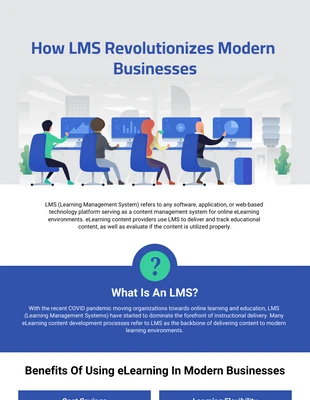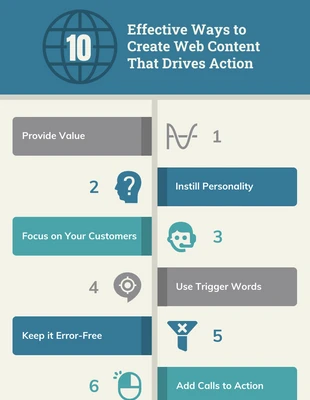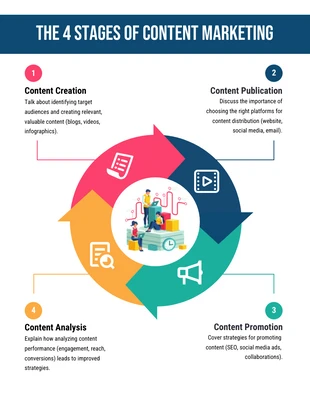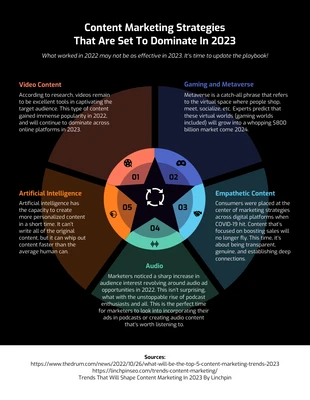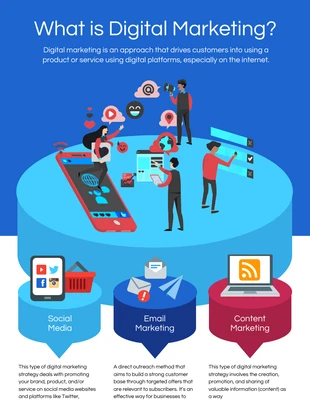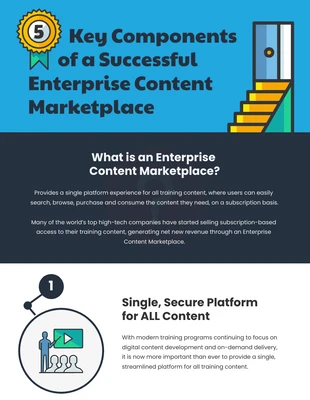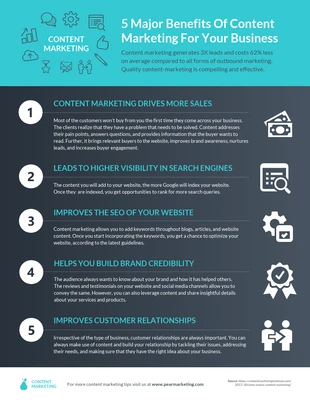
LMS Content Providers Infographic Template
Revolutionize learning through online education. Start by editing and customizing this LMS content providers infographic from Venngage.
100% customizable templates
Millions of photos, icons, charts and graphics
AI-powered editing features
Effortlessly share, download, embed and publish
Easily generate QR codes for your designs
- Design stylemodern
- Colorslight, vibrant
- SizeCustom (816 x 2389 px)
- File typePNG, PDF, PowerPoint
- Planpremium
Here is a fun fact. Did you know that a single online learning course can reduce carbon footprint emissions by as much as 85% compared to an in-person training? That’s right. The resources necessary for in-person training involve traveling, food, office space, and others. Meanwhile, online learning modules can be accessed right from the comfort of your home. Because of this, more organizations are aggressively shifting their training programs to online learning backed by LMS content providers. LMS refers to any software, application, or web-based technology platform serving as a content management system for online eLearning environments. LMS is used by eLearning content providers to deliver and track educational content, as well as evaluate if the content is utilized correctly. With the recent COVID pandemic moving organizations towards online learning and education, LMS (Learning Management Systems) have started to dominate the forefront of instructional delivery. Many eLearning content development processes refer to LMS as the backbone of delivering content to modern learning environments. Organizations, businesses, and academic institutions benefit heavily from using online learning backed by LMS as an instructional medium. Instead of
Explore more
- Business
